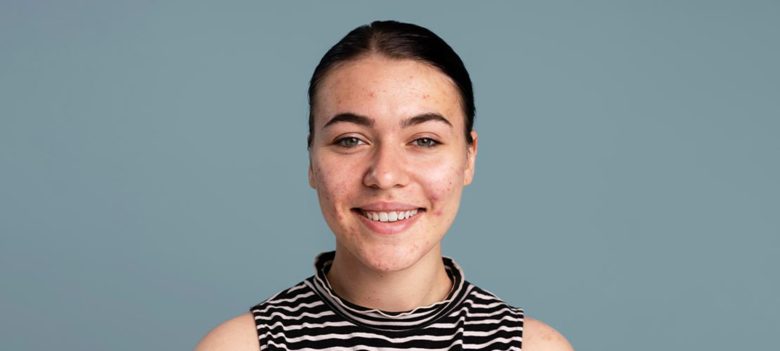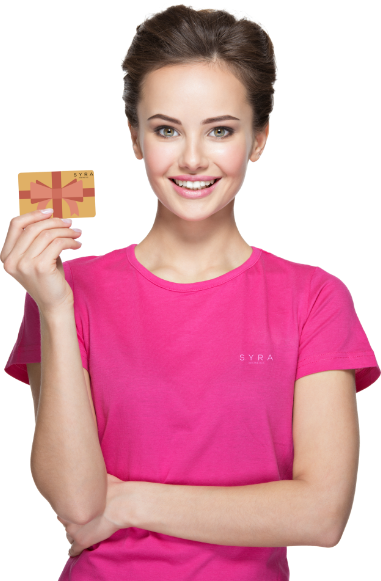Table of Contents
What is Hormonal Acne?
People ranging from 20 to 50 years of age are the ones who are mainly affected by hormonal acne, which is also known as adult acne. Being the direct result of excessive sebum in oil glands, this type of acne causes the affected person to get bumps over the skin, in areas including your face, shoulders, chest, and back in the following forms:
- Whiteheads
- Cysts
- Pimples
- Blackheads
While hormonal acne affects people regardless of their gender i.e. both men and women being affected by it – however women, women experiencing menopause, as well as pregnant women are the main targets of hormonal acne.
Acne in general happens to be the most commonly occurring skin-related problem in the United States. It is said to be experienced by almost 80% of the entire population within their lifetime. Women are the most acne-affected gender, 50% of women in their 20s, and 25% of women who are in their 40s get affected by hormonal acne.
What Causes Hormonal Acne?
Clogged pores are the main cause that leads to acne – when there is an increase in the amount of oil your skin produces due to hormonal changes, that is what leads to the development of hormonal acne. There is the presence of bacteria in the pores of your skin, exactly where the hair grows (hair follicles); when that bacteria interacts with the oil produced by your skin, that is what causes acne.
Clogged pores are the result of:
- Excess sebum i.e. the oily substance that is produced in the middle layer of your skin by the sebaceous glands
- Bacteria
- Dead skin cells
The causes of hormonal acne that can be controlled are:
- Stress
- The use of skincare and hair products that are not specifically free of oil or such components that would not clog the pores i.e non-comedogenic or non-acnegenic
- Sleep deprivation
The causes of hormonal acne that can not be are:
- Change in women’s hormonal levels that take place close to their periods, while being pregnant, during irregular periods, during menopause, or once birth control pills are discontinued
- Testosterone treatments for men
- Genetic predisposition i.e. family history of acne
- Side effects of certain medications such as steroids
- Pre-existing medical conditions such as polycystic ovary syndrome, other ovarian conditions, and metabolic conditions
Symptoms of Hormonal Acne
Acne also leads to lesions i.e. the damaged skin tissues; which can become red, sore, inflamed, and painful. While the occurrence of lesions happens mostly on the cheeks, they also might appear on the following areas of your body:
- Back
- Shoulders
- Chest
- Face
- Neck
Listed below are the various types of lesions that the hormonal acne can appear as:
- Whiteheads
- Blackheads
- Papules i.e. raised skin tissues
- Pustules i.e. skin bumps that contain pus
- Cysts i.e. pocket under the skin that contains fluid
How To Prevent Hormonal Acne?
Mostly hormonal acne is absolutely unavoidable if it’s going to happen there isn’t much that one does about ducking it – However, there are a few things that if followed appropriately can minimize the risk of you getting the acne breakout to some extent.
The adjustments required to minimize the risk of acne are inclusive of:
- Lifestyle changes with the objective to obtain appropriate sleep, developing healthy eating habits, and minimize stress
- Use of hair and skin care products that are free of ingredients that would possibly clog pores
- Discuss treatment options with your healthcare provider for persistent acne
Hormonal Acne Treatment
The hormonal acne-induced painful inflammation, pimple occurrence, and sebum production can be reduced using several different treatments – and which treatment to opt for can be chosen based on the severity of the hormonal acne being experienced.
The list of available hormonal acne treatments are:
- For moderate to severe acne: Antibiotic and/or isotretinoin (retinoid).
- For cystic acne: Steroid injection (intralesional triamcinolone).
- For blackheads and whiteheads: Topical cream (tretinoin)
- For inflammatory acne: Topical retinoid and/or topical antibiotic and/or benzoyl peroxide
Here are a few other treatments that are also effective when it comes to the reduction of hormonal acne:
- Change in diet
- Laser or light therapy
- Daily skin cleansing
- Oral contraceptives such as birth control
Conclusion
Experiencing breakouts of hormonal acne on your skin can be very frustrating and upsetting, especially as you’re reaching adulthood. Anyone who has been dealing with persistent hormonal acne issues, either continuously or at regular intervals, should get in touch with their healthcare provider right away, seeking a permanent solution to eliminate or at least minimize hormonal acne breakouts.
You can also get in touch with board-certified aestheticians at Syra Aesthetics, to avail yourself the advanced treatment options to eliminate your pesky pimples once and for all.
————————————————-
– Disclaimer –
This blog is for informational & educational purposes only and does not intend to substitute any professional medical advice or consultation.
For any symptoms or medical advice, please consult with your physician, Or Book an appointment with our board-certified aestheticians at Syra Aesthetics.

-
About The Author
Dr. Syra Hanif M.D.Board Certified Primary Care Physician
Dr. Hanif is the Director of Aesthetic Medicine. She is a board-certified physician in Aesthetic Medicine who specializes in using non-surgical alternatives in order to enhance one's appearance through Botox and fillers.
Read More


